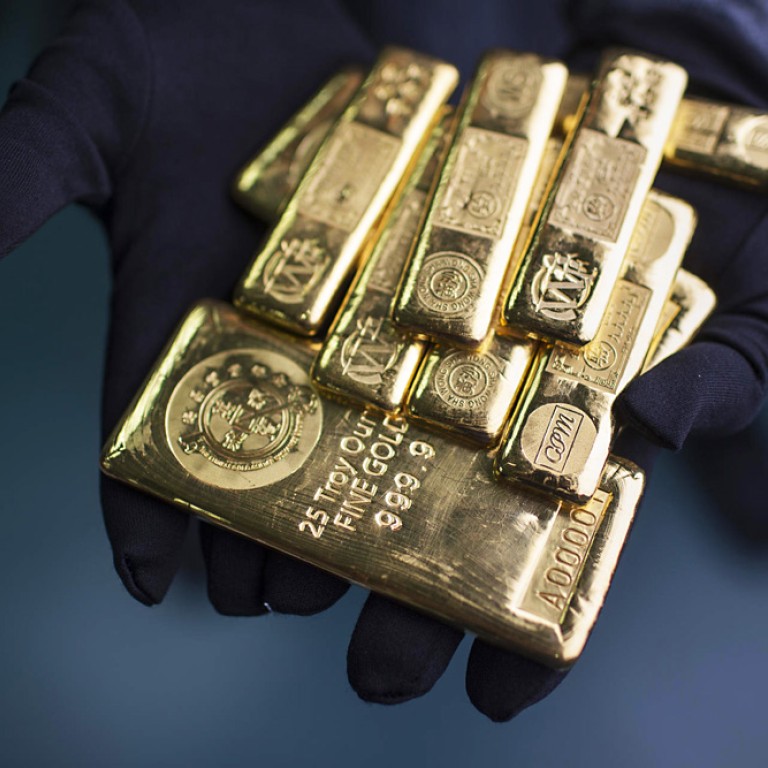
China opens Beijing to gold imports, cutting into Hong Kong's transit role
Opening the capital as the third shipment point will help the PBOC keep purchases discreet as it is believed to be adding to its bullion reserves
The mainland has begun allowing gold imports through the capital, sources familiar with the matter said, in a move that would help keep purchases by the world's top bullion buyer discreet at a time when it might be boosting official reserves.

The mainland does not release any trade data on gold. The only way bullion markets can get a sense of its purchases is from the monthly release of export data by Hong Kong, which supplied US$53 billion worth of gold to the mainland last year.
"We have already started shipping material in directly to Beijing," said an industry source.
The quantities brought in so far had been small as imports through Beijing had only been allowed since the first quarter of this year, sources said.
The People's Bank of China was believed to be adding to its gold reserves, the World Gold Council said, as it looked to diversify from US Treasuries. The central bank rarely reveals the numbers.
The 28 per cent plunge in gold price last year and the mainland's record bullion imports sparked speculation that the PBOC had added huge amounts of gold to its reserves and could make an announcement this year.
Central banks tend to be very secretive about their gold purchases and sales because prices are extremely sensitive to their trades. Rumours last year of Cyprus selling its gold reserves to prop up finances sent the metal's price down more than 10 per cent over two days, its biggest such decline in 30 years.
Gold has traditionally been imported from Hong Kong into Shenzhen, where nearly 70 per cent of the mainland's gold jewellery business is located. Shanghai was opened up as a second port last year. Only banks are allowed to import gold into the mainland.
The mainland imported nearly 1,160 tonnes of gold from Hong Kong last year, more than twice 2012's figure, as the drop in prices caused a spurt in demand.
An analysis of trade figures from data provider Global Trade Information Services showed the mainland imported at least a further 194 tonnes last year from centres other than Hong Kong, likely into Shanghai.
One source said the move to open up Beijing "is partly driven by the fact that Hong Kong is perhaps a little too transparent", but it was also to accommodate upcoming free-trade zones and non-jewellery demand.
Besides the 1,160 tonnes of gold imported from Hong Kong last year, the mainland produced about 428 tonnes domestically.
The World Gold Council has said mainland demand was 1,066 tonnes last year, leaving the industry guessing about the "surplus" of about 522 tonnes, not including direct imports.
The central bank last disclosed its gold reserves in 2009, when it announced its holdings had risen to 1,054 tonnes from 600 tonnes in 2003.
Philip Klapwijk, managing director of Hong Kong-based consultancy Precious Metals Insights, has said the mainland's official-sector purchases could have totalled 300 tonnes in the first half of last year and the pace likely continued in the latter half.
Rumours estimate the size of the PBOC's gold reserves at 3,000 to 5,000 tonnes. The United States is the biggest holder, with more than 8,000 tonnes.
Even a 1,000-tonne increase from last-announced levels could prompt a jump in gold prices, which would make the PBOC very cautious about the timing of any announcement, said two mainland analysts.

